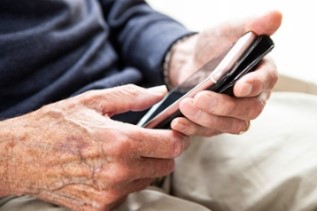
In a study funded by the National Institute on Aging, a mobile app designed for cognitive testing displayed proficiency in forecasting and identifying frontotemporal lobar degeneration (FTLD), as reported in the peer-reviewed journal JAMA Network Open. This innovative tool holds promise for the early detection and ongoing assessment of FTLD from a distance.
FTLD encompasses a suite of neurodegenerative conditions, which include frontotemporal dementia among others, characterized by stark changes in personality or behavior, cognitive impairments, language and speech difficulties, and/or motor function decline. Affecting primarily individuals between 45 and 65 years of age, FTLD is comparatively rare and notoriously challenging to diagnose, often mimicking psychiatric disorders in its presentation.
Investigators from the University of California, San Francisco led a cohort study involving 360 participants over three years. The average participant age was 54 years, with the cohort comprising healthy individuals, diagnosed FTLD patients, and asymptomatic individuals carrying a genetic mutation linked to FTLD.
Study participants downloaded a specialized app onto their smartphones and engaged in a series of tasks designed to evaluate executive functions—including the brain’s capacity for organization, prioritization, selective attention, and impulse regulation—and memory assessments, repeated thrice across a fortnight. The app also harnessed diverse data types, capturing voice samples, physical motions, gait patterns, equilibrium, and various linguistic attributes.
The app demonstrated adeptness at identifying nascent markers of FTLD in individuals who were genetically predisposed but asymptomatic. Comparatively, the self-administered tests conducted through the app showed comparable sensitivity to in-person evaluations typically carried out in a clinical environment. It efficiently distinguished between individuals with more advanced stages of FTLD and those without, while its test outcomes consistently corresponded with other FTLD severity indicators and concurrent cerebral atrophy.
This investigation underscores the capability of a smartphone application to facilitate early FTLD diagnosis and enable remote symptom tracking. Nevertheless, further research is required to corroborate the app’s efficacy across a broader and varied cohort of users.
